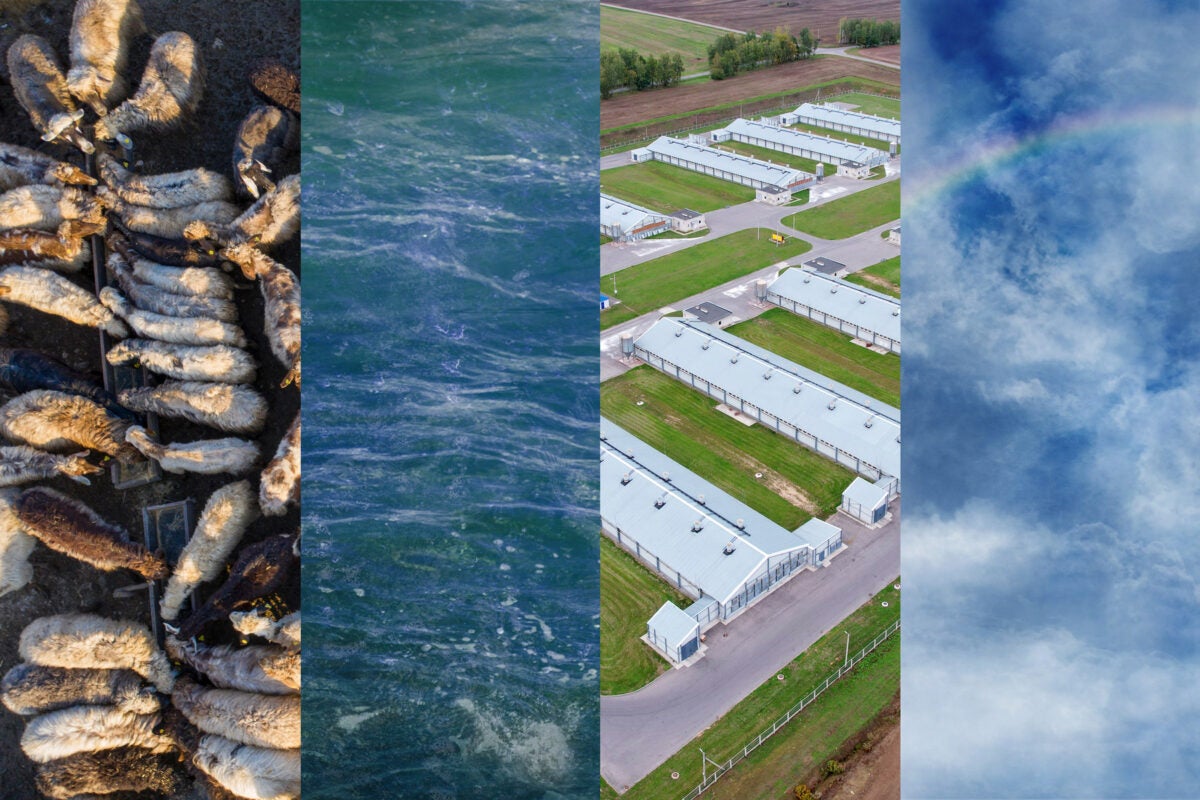
Opinion
‘Silent Spring’ still holds lessons for keeping the planet, and ourselves, healthy
I first read biologist Rachel Carson’s cautionary tale of a silent spring as a medical student in the late nineties. Her lyrical prose provided me with an ecological view of health that was missing from my medical school textbooks. Later, her words became as important as my stethoscope to understanding medicine, and grounded my public health career. She made me realize that how we treat other humans, animals, and the planet translates to how much we harm or safeguard our own health. Sixty years later, the book’s lessons are more relevant than ever.
Originally published in 1962, Silent Spring told the story of a fictional town in the heart of America, once in harmony with nature, then suddenly stricken by a strange blight. It turns out that blight was in fact man-made—a synthetic agricultural chemical known as DDT. Yes, we’ve since banned DDT, but other agrochemicals and industrial agricultural practices are still in use. Many of our modern public health crises, from obesity to infectious disease, can be traced to ecological causes: habitat destruction, intensive agriculture, biodiversity loss, pollution, and climate change.
Sign up for Harvard Public Health
Delivered to your inbox weekly.
In her seminal tale, Carson challenged the notion that humans are separate from nature. The latest example is the emergence of SARS-CoV-2 (the novel virus that causes Covid-19). Although researchers are still investigating the origins of the virus, a growing body of evidence confirms that environmental degradation, the commercial trade in wild animals, and intensive animal farming increase the risk of infectious disease outbreaks and negatively impact human and animal health.
To address the multiplying global health threats stemming from our status quo relationship to animals and the environment, public health experts must recognize the importance of relationships between all living organisms and our shared environments in their approach to policy and practice.

Activist and author Rachel Carson, whose book "Silent Spring" led to a study of pesticides, testifies before a Senate Government Operations Subcommittee in Washington, D.C., June 1963.
Charles Gorry / AP Photos
A fitting agenda for action would include expanding guiding principles of public health—social responsibility, public engagement, and equity—to include other-than-human entities: nonhuman animals, plants, and ecosystems.
To do this, some medical and public health professionals, scientists, and policymakers have begun to adopt a framework called One Health, an approach that aims to sustainably balance the health of all forms of life—rather than approach human health separately. Although this simple concept can be traced to Indigenous Traditional Knowledge and ancient times, One Health has gained traction in recent years because of concerns about emerging diseases that can be transmitted across species. Now embraced by the World Health Organization (W.H.O.), the Centers for Disease Control and Prevention, and international financial institutions, One Health is increasingly used to guide the development of international agreements, funding decisions, research projects, and development programs. For example, the One Health Joint Plan of Action—launched in 2022 by the Food and Agriculture Organization, the UN Environment Program, W.H.O., and the World Organization for Animal Health—aims to integrate systems and build capacity to address health threats to humans, other animals, plants, and the environment.
A One Health approach could help resolve many of our global problems, but only if it places the ecological view of health that Carson espoused at the heart of global and local policy, research, and practice. Our approach to public health has historically been too anthropocentric and failed to pay attention to ethics and inter-species justice. For example, in pandemic prevention and response, we’ve paid much more attention to catching and monitoring emerging diseases in captive and wild animals that pose threats to humans, than to addressing the root causes of pandemics: habitat destruction, animal farming, and wild animal trade—all issues that would require us to re-think the way we treat animals. As Carson wrote, healthy ecosystems are virtually impossible to realize without respect for human and animal life.
Although One Health’s adoption by some major public health organizations is a good start, an ecological approach must be incorporated at all levels, from research to global policy to local practice. Academic and government institutions can also model leadership through their own institutional policies, infrastructure projects, investments, and divestments from harmful industries.
Rachel Carson might not have known how much climate change would become a defining crisis of our time when she penned Silent Spring. But the combination of her logic and reverence for the natural world offers an example of how we can sustainably address the deepest roots of disease and reframe how we approach the health of the planet, animals, and ourselves.
Composite image: Temizyurek, Fermate, and Maksim Safaniuk / iStock.


